
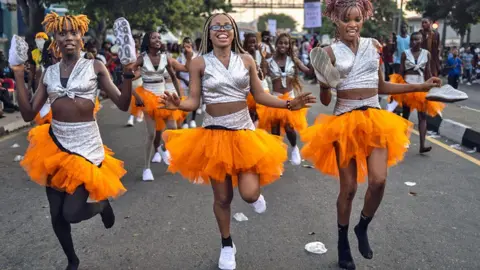 Olympia de Mesmont/AFP
Olympia de Mesmont/AFPChristmas revelers flocked to the southern Nigerian coastal city of Calabar this weekend for a festive carnival dubbed “Africa's largest street party.”
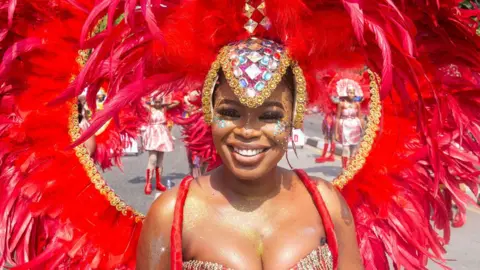 Emmanuel Adegboye/EPA
Emmanuel Adegboye/EPAThe attractive show featured floats and dancers from many different ethnic groups in Nigeria.
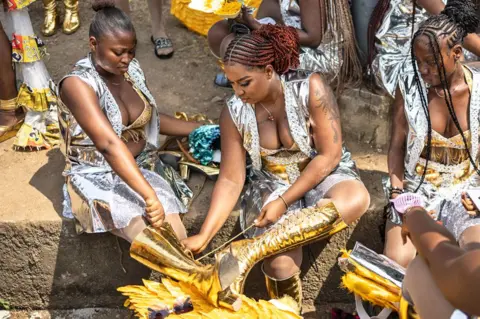 Olympia de Mesmont/AFP
Olympia de Mesmont/AFPThe month of festivities in December attracts many partygoers to Calabar, the capital of Cross River State and home to many Christian communities. Agence France-Presse says organizers say up to two million people will participate.
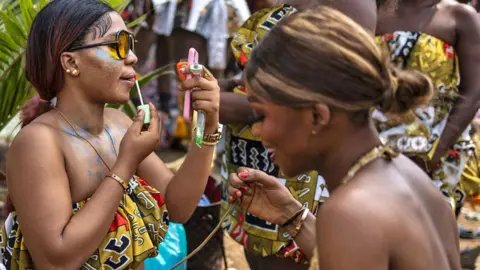 Olympia de Mesmont/AFP
Olympia de Mesmont/AFP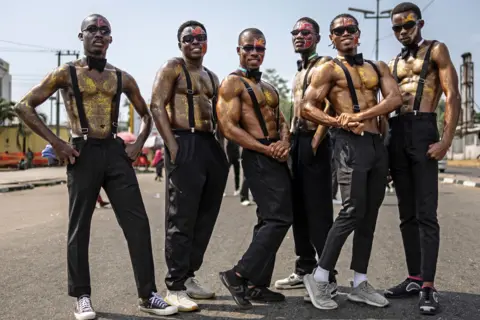 Olympia de Mesmont/AFP
Olympia de Mesmont/AFPAt least 14 groups reportedly participated in the shows and competitions this year.
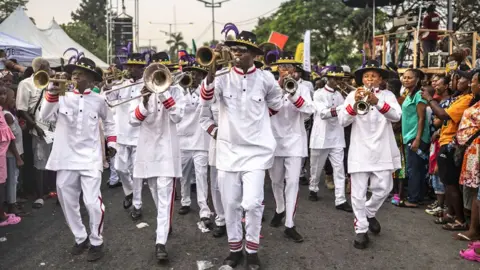 Olympia de Mesmont/AFP
Olympia de Mesmont/AFPMost of the carnival goers danced to the tunes of Afrobeats songs blaring from giant speakers.
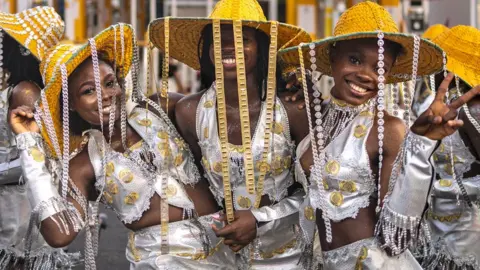 Olympia de Mesmont/AFP
Olympia de Mesmont/AFPThe carnival celebrates two decades since its beginning. “We see different designs and different outfits,” Grace Job, one of the attendees, told AFP. “There's a lot of energy.”
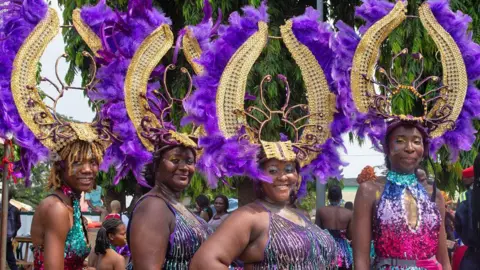 Emmanuel Adegboye/EPA
Emmanuel Adegboye/EPAThe carnival attracts a wide range of people to the streets. The squad pictured below is from the University of Calabar – with uniforms printed with the institution's logo.
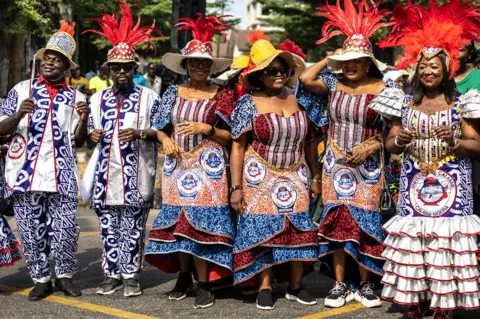 Olympia de Mesmont/AFP
Olympia de Mesmont/AFPSome costumes referred to the city's links to the transatlantic slave trade. The figure below depicts manilas – copper bracelets introduced by Portuguese merchants as a form of currency and used from the 16th to 19th centuries.
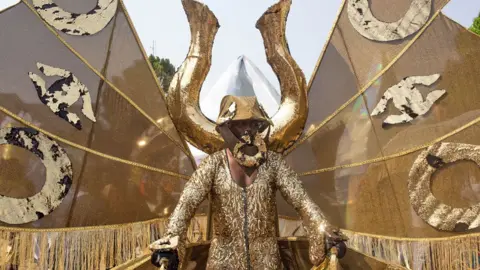 Emmanuel Adegboye/EPA
Emmanuel Adegboye/EPAThis woman's costume dates back to the colonial era and is dressed as a giant British West African coin from the era of British Monarch George VI. Nigeria gained its independence from Britain in 1960.
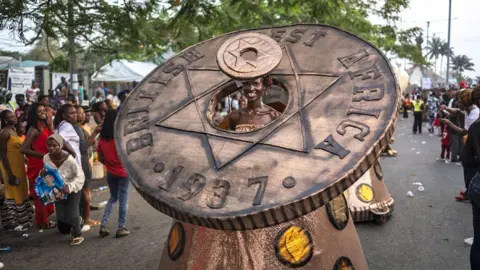 Olympia de Mesmont/AFP
Olympia de Mesmont/AFP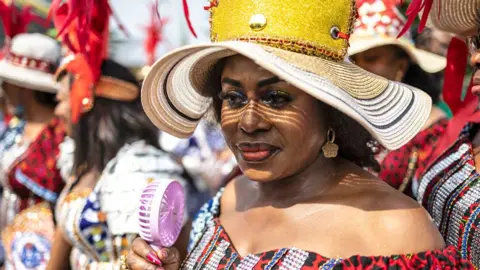 Olympia de Mesmont/AFP
Olympia de Mesmont/AFP“Everyone is trying to highlight tradition and culture,” Rijois Elemi, 25, a dancer and civil engineering student, told AFP.
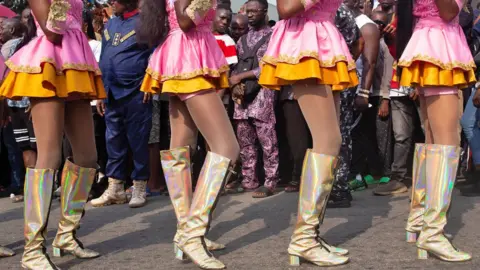 Emmanuel Adegboye/EPA
Emmanuel Adegboye/EPAAt a stadium in Calabar on Friday evening, Nigerian music stars Runtown and Iyanya performed at a carnival concert. Calas Vegas went on to win the title of Best Carnival Band for the second year in a row.
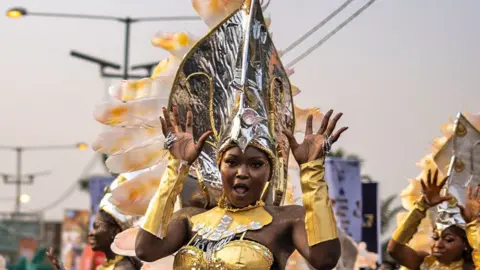 Olympia de Mesmont/AFP
Olympia de Mesmont/AFPCross River State sees the carnival – now the largest in Nigeria – as a way to attract visitors not only from all over Nigeria – but also from the diaspora.
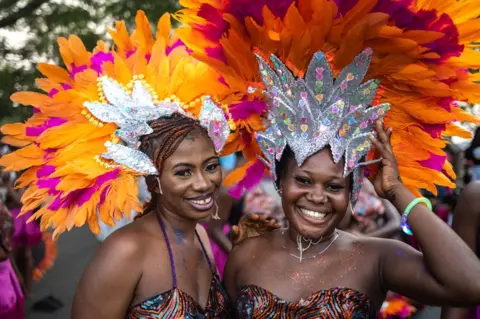 Olympia de Mesmont/AFP
Olympia de Mesmont/AFPYou may also be interested in:
 Getty Images/BBC
Getty Images/BBCGo to BBCAfrica.com For more news from the African continent.
Follow us on Twitter @BBCAfricaon Facebook at BBC Africa Or on Instagram at bbcafrica








